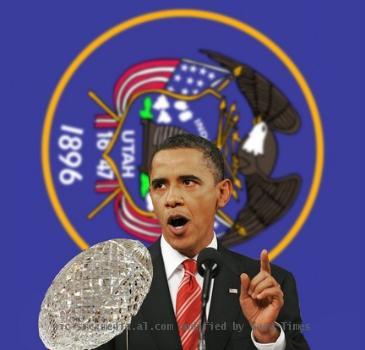EU foreign policy chief seeks open Gaza borders to allow territory’s economy to flourish
By APSaturday, July 17, 2010
EU foreign policy chief seeks open Gaza borders
RAMALLAH, West Bank — EU foreign policy chief Catherine Ashton says Gaza’s borders must open to enable the territory’s battered economy to recover.
Ashton spoke at a news conference Saturday with Palestinian Prime Minister Salam Fayyad.
Ashton is to tour Gaza on Sunday to gauge whether Israel’s decision to ease its 3-year-old blockade of the Hamas-ruled territory has improved the lives of ordinary Gazans.
Earlier this month, Israel said it would allow the import of most consumer goods to Gaza. However, Israel continues to ban exports and restricts the import of badly needed construction materials.
Ashton says Israel needs to go further and that “there needs to be an opening of the crossings to allow the flow of people and goods in both directions.”
THIS IS A BREAKING NEWS UPDATE. Check back soon for further information. AP’s earlier story is below.
RAMALLAH, West Bank (AP) — Palestinian President Mahmoud Abbas said he’ll resume direct peace talks if Israel accepts its 1967 frontier as a baseline for the borders of a Palestinian state and agrees to the deployment of an international force there.
Abbas is under growing pressure from the United States to resume negotiations, and met Saturday with President Barack Obama’s Mideast envoy, George Mitchell.
Abbas’ latest comments, published Saturday in the Jordanian newspaper Al-Ghad, hinted at some flexibility. The Palestinian leader did not mention a comprehensive Israeli settlement freeze as a condition for negotiations — something he has underlined as crucial in the past.
However, it seemed unlikely Israeli Prime Minister Benjamin Netanyahu would meet Abbas’ demands. Netanyahu has refused to be pinned down on a framework for negotiations, insisting on talks without conditions.
The Palestinians are wary of entering talks with the hardline Netanyahu, after 17 years of intermittent talks with a succession of Israeli leaders failed to bring them any closer to statehood.
The Palestinians want to establish their state in the West Bank, Gaza Strip and east Jerusalem, territories Israel captured in the 1967 Mideast War. Netanyahu has not said how much occupied territory he is willing to relinquish for a Palestinian state. However, he has said he will not give up control of Jerusalem and has insisted on a continued Israeli troop presence on the eastern border of a future Palestinian state.
Negotiations between Abbas and Netanyahu’s predecessor, Ehud Olmert, broke off in December 2008, on the eve of Israel’s military offensive in the Hamas-ruled Gaza Strip.
Abbas has said that in these negotiations, he and Olmert reached an agreement in principle on security arrangements, including the deployment of an international force in the future Palestinian state.
The two leaders also discussed a possible land swap that would allow Israel to annex some Jewish settlements on war-captured lands, and compensate the Palestinians with an equal amount of Israeli land. The two sides disagreed on the amount of land to be swapped.
“We have put forward to the Israelis our position on different final status issues, and especially on borders and security,” Abbas told the Jordanian newspaper. “We have said that the borders need to be on a 1967 basis, with agreement on land swaps equal in value and size, and we gave our vision regarding security, which was agreed on previously, in Olmert’s days.”
He said the Israelis need to recognize these propositions as acceptable, in principle.
“If they agree, we will consider that progress … and this would prompt us to go to direct negotiations,” he said.
It was not clear whether Mitchell made any headway in his meeting with Abbas on Saturday.
Mitchell would only say he was “heartened” by the talks he has held in the region in recent days and that he would return soon. On Friday, he met with Netanyahu.
The U.S. envoy has been shuttling between Abbas and Netanyahu in recent weeks to try to close some of the gaps between the sides.
Abbas, Netanyahu and Mitchell are scheduled to meet separately with Egyptian President Hosni Mubarak in Cairo on Sunday to sound out the prospects for a return to direct negotiations.
Abbas aide Yasser Abed Rabbo said a decision on direct talks is not expected before early next month. He said the Palestine Liberation Organization’s top decision-making body and Arab foreign ministers would have to weigh in on the issue, and that Abbas is also waiting for clarifications from the U.S.
The Palestinian leader will have to make a decision by September at the latest. The four months set aside for Mitchell’s shuttle diplomacy and Israel’s partial curb on settlement construction will have come to an end by then.
Associated Press writer Diaa Hadid contributed to this report from Jerusalem.
Tags: Barack Obama, Foreign Policy, Gaza Strip, International Trade, Israel, Jerusalem, Middle East, North America, Palestinian Territories, Ramallah, Territorial Disputes, United States, West Bank

